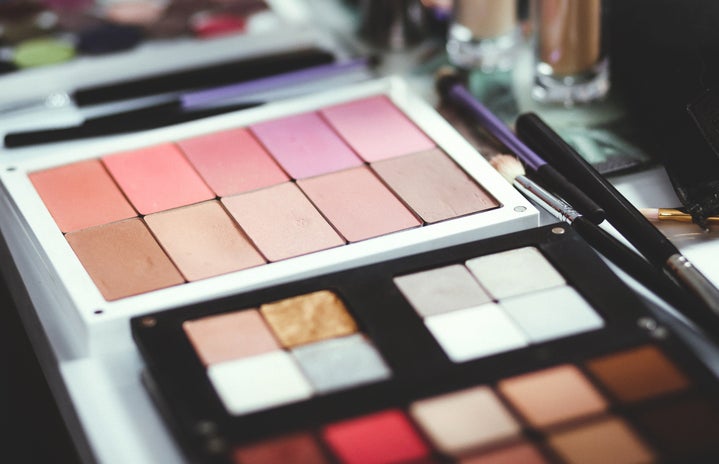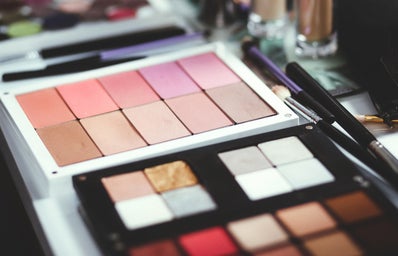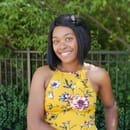I remember in 8th grade my friend and I discovered that my afro could hold about nine pencils in the thick depths of its gloriousness. One by one he stuck the pencils in and my hair swallowed them like an abyss, forever lost. Embracing the versatility of my natural hair has always been a definite yes for me. I love the kinky curls, the thickness, and the volume. I never questioned the quality of my hair or even my identity until I moved to a small suburban town called Novi in the 7th grade in 2010.
I would walk the colorful halls, plastered with murals, stocked with lavender lockers and overflowing with adolescents from different walks of life, and receive numerous questions from classmates like “Can I touch your hair?” or “How’d you get it like that?” and it really made me wonder why my hair was so intriguing to people. I assumed everybody knew what natural black hair looked like, but the majority of the student body was white, and they weren’t acquainted with certain aspects of black culture.
One day, I decided to wear an ‘80s afro and everyone LOST IT. My peers gravitated towards me as my voluminous hair created a soft-to-touch cloud around my head. Lured in by the irresistible curiosity that accompanies all unconventional things, the white kids constantly asked to touch it, random people, I didn’t even know just patted my hair without my permission, and the black kids disapprovingly glared on because at the time it was looked down upon to wear black hair in its natural state.
I was shocked.
I soon realized that a lot of black students weren’t comfortable wearing their natural hair and white kids were enraptured by natural hair because they had never been exposed to it. Since the natural hair movement hadn’t been in full swing yet, people were not familiar with hairstyles like twists, curly fros, afros, etc. I was one of the few black kids who wore these styles and it made me more confident and prouder of my culture. But it took a lot to get to that point.
Throughout my journey, I was exposed to stigmas that came along with “black” hair. Wearing it natural made it entirely too *“nappy,” wearing dreadlocks perpetuated the stereotype of dirtiness or unprofessionalism, wearing *cornrows was interpreted as thuggish or *“ghetto.” But, all the negative stereotypes that clung to black culture became glorified trends within the white community. The problem with this is that society tends to quickly pick up certain aspects
of the culture as fashion trends without recognizing the historical meaning behind it. This is where the demeaning effects of cultural appropriation begin to emerge. Cornrows were picked up as a new trend in white society when, in fact, French braids have been around for ages within the black community.
Whites who wore dreads were praised for being “edgy” or “eccentric” or “daring,” a positive connotation that wasn’t attached to the hairstyle when the original creators of the style (blacks) wore it. The negative connotations that have been associated with black culture detract from our pride and esteem. White hair was “good hair.” A habit that originated from slavery days, when white features were the only acceptable characteristics in society. This mentality was applied to every black characteristic, even down to the single strand of curly coarse hair, which led blacks to continuously perm their hair so that it was bone straight or to buy weaves to achieve a “prettier look.”
For a while, I felt like I didn’t have anything that distinctively identified me as a black person besides my skin tone, but my hair journey has opened my eyes to societal barriers that persist within the black community. I realize that we are still heavily stereotyped based solely off our appearances, and while this continues to pollute the minds of many, I’ve never let these things diminish my pride.
I am Afrocentric and it will always emanate throughout my demeanor, opinions, apparel, and even my hair. I’ve loved seeing the progression of the natural movement within the black hair community because not only are curl friends embracing their natural beauty, but they are also boosting the self-esteem and self-love of the generations that will follow us. The natural hair community is filled with females who are empowering each other and uplifting their confidence and I’m here for it. Although I no longer go around sticking pencils into my hair for the fun of it, I do love versatility of my hair and how much the natural hair community has flourished over the years.
GLOSSARY
*Nappy (noun): Tightly coiled / curled unaltered hair. Coiled hair in its natural state as found on people of African descent who do not chemically alter their hair texture (Urban Dictionary)
*Cornrows (noun): a style of braiding and plaiting the hair in narrow strips to form geometric patterns on the scalp (Google)
*Ghetto (noun/adjective): a part of a city, especially a slum area, occupied by a minority group or groups/ Slang: Often Disparaging and Offensive. noting something that is considered to be unrefined, low-class, cheap, or inferior (Google/ Dictionary.com)
*Afrocentric (adjective): regarding African or black culture as preeminent (Google)
-Afrocentrism: A movement spearheaded by African-American scholars to prove that, despite what most people would like to believe, ancient Africa had her own civilizations, languages, cultures, and history long before the arrival of the first Europeans to the continent.
Afrocentrism is not Black Supremacism. There are Black Supremacists who hold Afrocentric views, but they also hold views that claim to elevate blacks above whites. That is not the aim of Afrocentrism. (Urban Dictionary)
*Good hair (adjective): A popular term in the African-American community, used to describe a black person’s hair that closely resembles the hair of a typical white person (i.e. soft, manageable, long, as opposed to “nappy” or “bad”) hair OR hair showing evidence of some European strain in a person’s blood (Urban Dictionary)
*Bad hair (adjective): A term popular in the African-American community; It is extremely curly/wavy and described as “nappy” and “kinky.” It is unmanageable and is the opposite of good hair. Those with this type of hair typically dye and fry it with chemicals to get it to look like white hair. (Urban Dictionary)
*Natural movement: Increase in black men and women accepting their natural hair.


